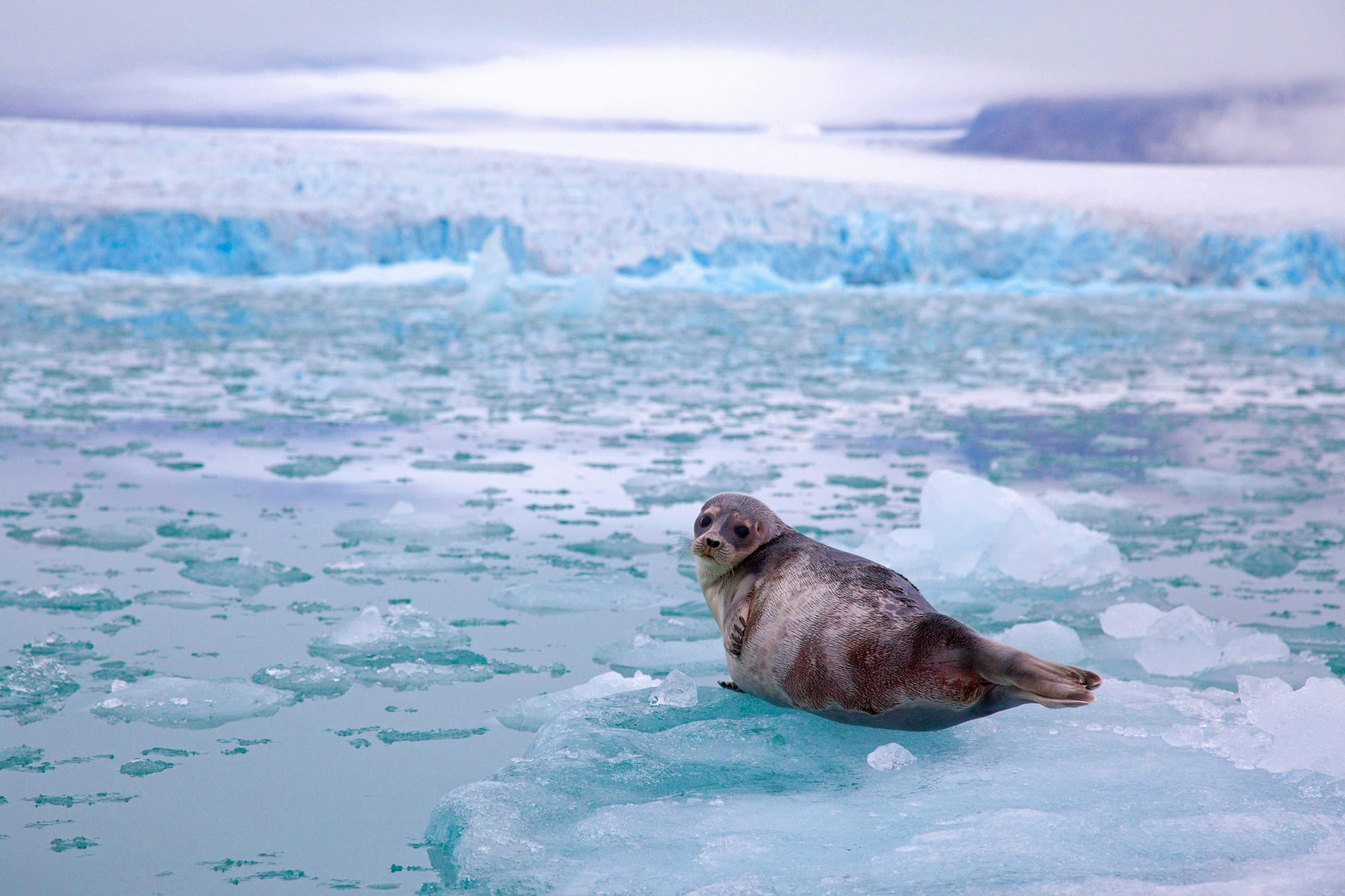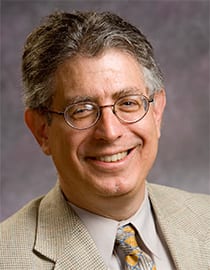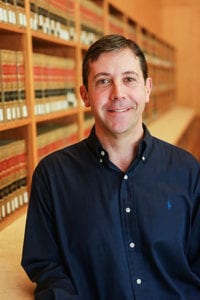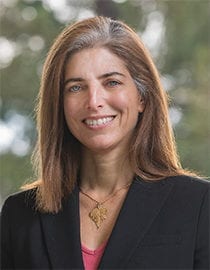
By Gwyneth K. Shaw
From California’s accelerating wildfires to the glut of hurricanes in the Southeast, it’s increasingly clear that global climate change is no longer just a threat but a sobering reality. Other environmental issues, including clean water and the survival of plant and animal species around the world, are both linked to climate change and stand-alone problems.
During the presidential campaign, now-president-elect Joe Biden made addressing climate and the environment a priority, promising to undo Trump administration policies in a number of areas, including the decision to withdraw the United States from the Paris climate accord.
But what can Biden and his team do if faced with a recalcitrant Congress, and what will the priorities be? Five of Berkeley Law’s resident experts on climate and environmental policy weighed in on what they think is coming, during the first 100 days and the rest of Biden’s term.
They agree that an early step for Biden should be to rejoin the Paris Agreement, but there are many more issues at stake, which they discuss below.
Q: What do you think a Biden administration might change on the very short horizon, and would those moves come through executive order or legislation? (Democrats control the U.S. House of Representatives, but two runoff elections in Georgia on January 5 will determine which party holds the majority in the Senate.)
Professor Holly Doremus ’91, a specialist in environmental law, natural resources law, and law and science and co-director of the Law of the Sea Institute: I assume nothing of importance will get through Congress in the next couple of years because no matter what happens in Georgia it will be very closely divided and there are Democrats who will be hard to get on board for any major environmental issue.

But that said: Immediately after the inauguration, President Biden can and has said he will rejoin the Paris climate accord. That won’t have any immediate substantive impact, but it’s hugely important symbolically. Biden can also immediately revoke a large number of problematic Trump executive orders. One that most people might not think of as an environmental problem is Executive Order 13957, issued in October 2020, which creates a new category of career federal civil servants subject to dismissal at the administration’s discretion. The Trump administration is racing to put employees in this category, apparently with the goal of draining the federal government of expertise. Because a key problem facing the Biden administration is federal employee morale and expertise drain, it’s vital that this order be repealed immediately, to be replaced by an expression of confidence in and support for the federal workforce.
The other immediate priority has to be personnel, finding capable and committed people to run the key environmental bureaucracies, including the Environmental Protection Agency, the Department of Interior, the National Oceanographic and Atmospheric Administration, the Council of Environmental Quality in the White House, and the Office of Information and Regulatory Affairs within the Office of Management and Budget, which is important because it reviews rules proposed by cabinet agencies before they can be formally issued.
Professor Eric Biber, who studies and teaches environmental law, natural resources law, energy law, land-use law, federal Indian law, and administrative law: In terms of executive action, the administration could move quickly to change course on leasing federal lands for fossil fuel development — which would be important from a climate perspective and from protecting important ecosystems and landscapes. It could also move to undo the prior administration’s rollbacks on methane emissions from oil and gas development — which is critically important from a climate perspective.
Finally, the new administration could reverse course on the prior administration’s efforts to roll back vehicle fuel efficiency standards — standards that are vital from both a clean air and a climate perspective. None of these would require legislative action, which will be challenging.

Professor Daniel Farber, who studies environmental law and policy and is the faculty director of the Center for Law, Energy, & the Environment (CLEE): Biden can issue an executive order rescinding all of Trump’s anti-regulatory executive orders; obtain a large increase in funding for advanced energy research (this requires the Senate, but GOP senators are likely to support it); and issue executive orders directing the EPA to reconsider Trump’s rollbacks of key regulation and restoring national monuments that Trump had downsized.
Ethan Elkind, director of CLEE’s climate program: Transportation is the single biggest source of greenhouse gas emissions in the U.S., so zero-emission vehicles will need to be a priority. Biden can immediately drop the Trump attempt to restrict California’s authority under the Clean Air Act to set more aggressive vehicle emission standards than the country as a whole. Biden’s EPA can also allow California to increase its mandate for automakers to sell or buy credits for more zero-emission vehicles, which many other states have signed onto. That action doesn’t require Congress.
Biden can restore and extend tax credits for purchases of zero-emission vehicles and expand it to other types of clean energy like energy storage, though that would take a budget deal with Congress. Biden can also work with Congress on a spending deal to bolster transit and clean energy deployment, including EV charging infrastructure, nationwide. Finally, he can bolster research into clean technology through the Department of Energy, which requires congressional cooperation on the budget but has bipartisan support.
Professor Claudia Polsky ’96, who focuses on environmental health issues and directs the Environmental Law Clinic: Without congressional activity — that is, via executive order or agency rulemaking — the Biden Administration could do important things to reduce exposure to toxic chemicals, including immediately deregistering the neurotoxic pesticide chlorpyrifos, whose status is the subject of ongoing federal court litigation; establishing regulatory limits for PFAS chemicals in drinking water, and designating the chemicals as “hazardous” under federal law to better control disposal and facilitate cleanup of contaminated sites; and implementing the Toxic Substances Control Act in the way that Congress intended to make happen through strengthening amendments in 2016. In analyzing chemical impacts, for example, the EPA would stop splitting impacts that should be lumped, such that dangerous chemical exposures would be sufficiently significant to warrant regulation.
Also, with some White House encouragement, I think one among the long-languishing cosmetics reform bills aimed at decreasing chemical exposure risks (the “C” of the Food, Drug, and Cosmetic Act, mostly untouched since 1938) could likely make it through Congress — even with a Republican majority in the Senate.
Q: What are three to five things you see as longer-term issues?
Doremus: In the longer term, there are a number of Trump administration rules that need to be undone. That’s not to say they are necessarily lower priority, just that undoing rules that have been finalized necessarily takes time because there are procedural hoops to jump through. Among the most important would be the ironically named Navigable Waters Protection Rule, which narrowly defines federal jurisdiction to regulate water pollution; the equally ironic Affordable Clean Energy Rule, which revoked the Obama-era Clean Power Plan, significantly cutting back on regulation of greenhouse gas emissions from the power sector; and the revocation of the Obama-era rule governing greenhouse gas emissions from new cars and authorizing California to regulate more aggressively. The Navigable Waters Protection Rule deserves the highest priority, in my view, because in it the Trump administration explicitly and mistakenly rejected a key role for science in deciding which waters fall within the scope of the Clean Water Act.
But even more important than those individual actions are the cross-cutting ones. Two regulatory examples are the recently finalized rule revising the way regulatory cost-benefit analysis is done at the EPA in an attempt to minimize the benefits of regulation and the new regulations governing compliance with the National Environmental Policy Act, which attempt to cut back on the scope of review of federal actions that may have adverse environmental impacts. The Biden administration should also revive and expand Obama-era efforts to enhance scientific integrity in government actions.
That is especially important for environmental agencies, which often must regulate at the frontiers of scientific knowledge and in the face of heavy political pressures. Career scientific employees should be assured that they are free to express their scientific opinions publicly, given time and incentives to stay fully abreast of new developments in their field, and encouraged to document their scientific views in the agency record. Political appointees who make the ultimate decisions in the many areas of environmental law where science and policy intersect and overlap should be required to clearly explain their understanding of the scientific evidence and their policy choices and the reasons for those choices.
And scientific advisory boards should be made up of independent scientists with appropriate expertise. Under Trump, the EPA in particular remade its advisory groups, attempting to ban academics who had been funded by the agency and inviting a large number of industry scientists. That should be reversed. Academics should be judged on the basis of their expertise, rather than the sources of their research funding, and the agency should be skeptical of industry-employed scientists who might have fairly direct financial incentives to minimize regulation.
Farber: EPA proceedings to undo Trump Administration rollbacks. Some proceedings may require a couple of years. Also negotiating with other countries to strengthen the Paris Agreement; getting Congress to pass legislation making it easier to build new electric transmission lines, which are needed to support a big increase in renewable energy; and passing an infrastructure bill that includes funding for clean energy — the odds of doing this and the scale of the funding depend on the outcome in the Georgia Senate runoffs.

Elkind: Long term, Biden needs to work with Congress to update our environmental laws to deal with climate change more directly, including setting a long-term national target on carbon neutrality. He’ll also need to implement new regulations to curb greenhouse gas emissions in the power and industrial sectors and ensure agency appointees embed climate change into all federal decision making. This could include updating financial regulations, such as requiring disclosure of climate impacts from investors, to national security and defense planning. Finally, any federal subsidies for transportation infrastructure and housing should have a greenhouse gas reduction requirement, to ensure these dollars are spent in walkable, transit-friendly areas and not encouraging high-polluting sprawl.
Biber: Longer run, the administration will have to figure out how it will use the Clean Air Act to address carbon dioxide emissions, if at all. The Obama Administration’s efforts here (the Clean Power Plan) faced significant legal uncertainty, and arguably were still not aggressive enough to deal with the problem. Of course, if there isn’t much happening in Congress, this will be a primary approach available to the new administration to address carbon dioxide emissions. A second issue will be budgets — how much can the new administration get through Congress in terms of items like tax-credit support for renewable energy investments, making our infrastructure more resilient to climate impacts, and more. Budgets are the one piece of legislation we know that Congress will have to enact — so it is an opportunity to make progress on this, and there may be ways to shape spending requests to help get more support in Congress for action. Finally, the new administration will need to tackle issues of equity in environmental protection — addressing issues of environmental justice is long overdue, but the prior administration did little to nothing on it.
Q: In your recent Science article, you argue that the Endangered Species Act (ESA) needs a significant overhaul, far more than simply rolling back the Trump administration’s changes. What are the most important elements that need work, and what are the prospects for making that happen? Do Biden’s choices of cabinet secretaries make a significant difference?
Doremus: The choice of cabinet secretaries matters a great deal, but the attitude toward them matters more. The trend in recent administrations, taken to the extreme by Trump, has been to try to centralize decision-making as much as possible in the White House. That doesn’t make sense in a government as large as ours, dealing with an enormous range of issues. Biden should allow his cabinet members much more independence. I’m encouraged by the nomination of Rep. Deb Haaland, a Native American, to be Secretary of the Interior, and Michael Regan to be EPA Administrator — people with environmental justice experience. Diversity in the cabinet can help ensure that problems are seen through all the relevant perspectives.
In my view, the most important changes needed are to ESA implementation, and can be made entirely by executive action. The Trump rules should be reversed, but they are not the core of the problem, and largely just seek to expand agency discretion. The Biden administration can simply exercise its discretion in a more conservation-oriented direction while it overhauls the rules. In the meantime, though, it should issue formal guidance on its understanding of key terms, such as how far the foreseeable future extends and when threatened species need protection.
Q: If you were running the government, what would your top five environmental priorities be?
Biber: First, constrain fossil fuel leasing and deal with methane emissions. Leasing of federal lands for fossil fuel development is a significant part of the emissions from the United States, and something that’s primarily under control of the executive branch, at least under current legislation. Likewise, methane emissions are that can be fairly clearly addressed through executive action under existing authorities (such as the Clean Air Act and public lands statutes) and would have a major immediate impact on greenhouse gas emissions from the U.S.

Second, work on environmental justice. Take the concept seriously and build environmental justice analyses into the regulatory programs of the EPA and other agencies.
Third is ecosystem restoration. There is so much we need to do to help ecosystems and species across the U.S. recover from human impacts and adapt to a future of climate change. This has benefits for people as well — forests and other ecosystems can be an important sink for carbon dioxide, helping to address climate change, and ecosystem restoration is central to responding to the fire risks that this summer so clearly reminded us of. And again, much of this can be done through executive action under current legislation, particularly in terms of public lands management.
Fourth, facilitate decarbonization of our energy systems. There has been tremendous progress in decarbonizing our electricity systems in the U.S. over the past decade, but we have so much more to do. There are real levers that the executive branch and budgets can give us to make more progress, such as ensuring that federal regulation of the national electric grid facilitates investments in renewable energy and energy storage, or tax credits to support investments in renewable energy, energy storage, and carbon capture.
Finally, speed the transition to electrification of our transportation systems. Once more, there is a lot that can be done with executive action and budgets here. Reversing course on the Trump rollbacks of efficiency standards, and aiming for higher standards going forward to send clear signals to manufacturers for investments. Tax credits for investments and purchases of electric vehicles. The U.S. has been a laggard on this issue globally, but there are real possibilities for us to become a leader here.
Farber: Rejoining the Paris Agreement; restoring and strengthening fuel efficiency standards for cars and trucks; restoring and strengthening limits on methane emissions from the oil and gas industry; strengthening the air quality standards for particulates and ozones, which Trump froze; expanding funding for existing environmental programs and getting Congress to fund green infrastructure.
Elkind: We need a firm target on carbon neutrality in all sectors of the economy as a signal to investors and direction for agency action. We need funds for this major clean energy transition, potentially paid for through a tax on greenhouse gas emissions. We need a major buildup of renewable energy, EV charging, and transit infrastructure, coupled with protections on agricultural land and open space around our cities to limit sprawl.
Doremus: I actually think the single most important thing the administration can do is use its bully pulpit to help the public understand the importance of collective action to protect the public good, a job which is uniquely suited to government. For at least the past 40 years there has been a loud line of argument from Republicans in particular to the effect that government is inherently bad, and should do as little as possible. That’s simply not true with respect to protection of inherently public goods like the environment, which benefit everyone but cannot be protected by individual market decisions. That case has to be made clearly and powerfully.
My second priority would also be partly rhetorical, and that would be defending the importance of expertise. Beyond rhetoric, though, I would make sure that career scientific employees are valued and protected against undue political influence. Third, and related, I would protect all civil service employees against political tests and coercion, and again use the rhetorical power of the office to help the public understand that the vast majority of civil servants work hard to further the public interest.
Q: How much of what the Biden administration will do early on is basically re-enacting regulations and/or policies that the Trump administration rolled back or rescinded?
Elkind: A lot of the initial action will involve dropping lawsuits, orders, and regulations from the Trump administration, while increasing enforcement on polluters. But the next stage will be proposing new regulations, which take years to develop and defend in court. Those new regulations will require more thought given the ideological makeup of the Supreme Court. Budget deals with Congress may provide more immediate opportunities for high-impact, near-term options to advance climate solutions.
Biber: Much of what they will be doing is undoing rollbacks — but there is space to go further as that process occurs. For instance, for fossil fuel leasing on public lands, the new administration can go further than simply not expanding leasing on federal lands, but even look strategically at where we want to terminate existing leases, such as for coal. And in terms of helping facilitate our adaptation to the future of climate change, there is a lot of room to be more proactive.

Polsky: The Biden administration has an enormous task ahead in just reversing the damage inflicted by the Trump Administration, including rebuilding staffing levels and morale at agencies like the EPA, which are hollowed out at the civil service level and politically captured at the top. Programmatically, the administration needs most immediately to stop affirmatively authorizing harm, such as by reversing Trump’s policies that have dramatically increased leasing for offshore oil drilling. Then, it needs to restore regulations and policies that aim to mitigate existing environmental harm, such as by reentering the Paris Agreement. It also needs to reverse a slew of recent regulatory rollbacks. Crucial among them are regulations governing vehicle efficiency, and regulations under the National Environmental Policy Act, a law that has been crucial in reducing harm from federal agency activities, such as permitting.
The new administration does have a laudable affirmative environmental agenda — such as regulating the PFAS chemicals that are contaminating drinking water nationwide, and increasing focus on environmental justice — but it has an Augean task ahead to muck out the mess made by the prior administration, and it’s not clear how much forward motion will be possible in a first term. I’m encouraged, though, that our present political moment is pushing concerns about racial and economic justice much higher on the agenda than they normally are, as exemplified by the controversy over who should helm the EPA. It’s urgent that we bring environmental protection and social justice into the same conversation, or we’re not going to achieve either.